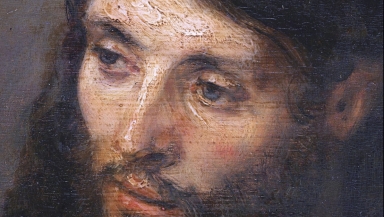Former Archbishop of Canterbury Rowan Williams has defended the right of Christians to protest when crosses are removed from public places.
In a new book on the meaning of the cross and resurrection, both in the early Church and in the modern world, Lord Williams of Oystermouth says it is "reasonable" to "get rather indignant" when crosses are removed from certain public places.
The Christian cross is a "sign" of God's love and freedom, he says.
It is a sacrifice that symbolises the forgiveness of sins.
Lord Williams, Master of Magdalene College, Cambridge and among the world's top living theologians, says in God with us that for early Christians, encountering a cross in a church would have been like being faced with a picture of an electric chair or guillotine.
"When we go into a Christian place of worship, we expect to see a cross. And when crosses are removed from public places, such as crematoria or hospital chapels, we quite reasonably get rather indignant about it," he writes in the opening chapter, an extract of which is reproduced today by Christian Today.
"But in the world in which Christianity began, a place of worship was the last place you would expect to see a cross. We can only begin to get some sense of what it might have felt like to encounter the symbol of a cross in the first couple of Christian centuries if we imagine coming into a church and being faced with a large picture of an electric chair or perhaps a guillotine," he continues.

"The cross was a sign of suffering, humiliation, disgrace. It was a sign of an all-powerful empire that held life very cheap indeed: a forceful and immediate reminder to everybody that their lives were in the hands of the state. You might well be used to seeing crosses on the outskirts of towns or by the side of the road, but most definitely not in any place of worship."
Later in the book, Dr Williams returns to one of his common themes: the true nature of prayer. He writes that it is easy to fall into a way of thinking of prayer as a sort of 'storming' of heaven, or "a campaign" to pressure God into changing his mind. Instead, he writes, prayer is "most deeply 'allowing God to happen in us'...being in the place where Christ is real".
The new book follows Being Christian and Meeting God in Mark (2014), Meeting God in Paul (2015), and Being Disciples (2016) all published by SPCK.
God with us: The meaning of the cross and resurrection – then and now is published by SPCK on Thursday 19 January.













